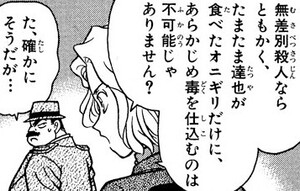It might be one thing if with 〜ならともかく
Grammar: Comparison and Contrast
ならともかく expresses a contract between two situations, often implying that one situation might be acceptable or understandable, while another is not. If highlights a comparison where the first clause is considered tolerable, while the second clause one is unacceptable.
A basic translation to English is, “(A) is fine, but (B) is not.”
Usage
The tone often carries a sense of judgment or emphasis on the unacceptability of the second situation. It is commonly used to express hypothetical or conditional contrasts, often with a critical undertone.
Formation
- Noun + ならともかく
- 学生ならともかく、社会人はそんな時間がない
- "A student might be one thing, but a working adult doesn't have that kind of time."
- Verb (plain form) + ならともかく
- 勉強するならともかく、遊ぶのは許されない
- "Studying might be one thing, but playing is not allowed."
- い-adjective (plain form) + ならともかく
- 安いならともかく、高いものは買えない
- "If it's cheap, that's one thing, but I can't buy expensive things."
- な-adjective (stem) + ならともかく
Further Reading
- Lesson 78: 〜ならともかく (marshallyin.com)
Examples
Indiscriminate murder would be one thing if with 〜ならともかく

Sonoko is invited to a band’s after party. During the get-together, the band’s singer Tatsuya eats a rice ball only to collapse and die. The police are called in, and Inspector Megure discovers the victim was poisoned. He accuses the man who prepared the food, but Conan bites into a rice ball to show it’s safe. The victim’s manager, Mari, agrees.
- 麻理:
- 「無差別殺人ならともかく、たまたま達也が食べたオニギリだけに、あらかじめ毒を仕込むのは不可能じゃありません?」
- “If it were indiscriminate murder, that's one thing but since it was just the rice ball Tatsuya happened to eat, wouldn't it be impossible to poison it beforehand?”
- 目暮:
- 「た、確かにそうだが…」
- “Th-that's true.”
The grammar ならともかく conveys that poisoning one rice ball is reasonable in the case of indiscriminate murder, but it’s an unreasonable method for a targeted murder.